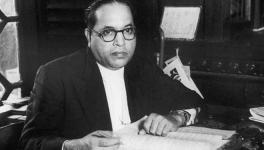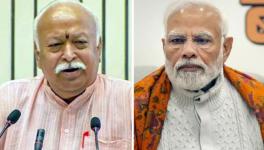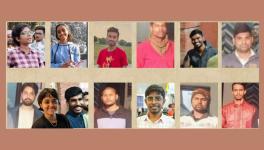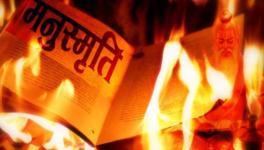Whose Sentiments are Really Being Hurt in India?
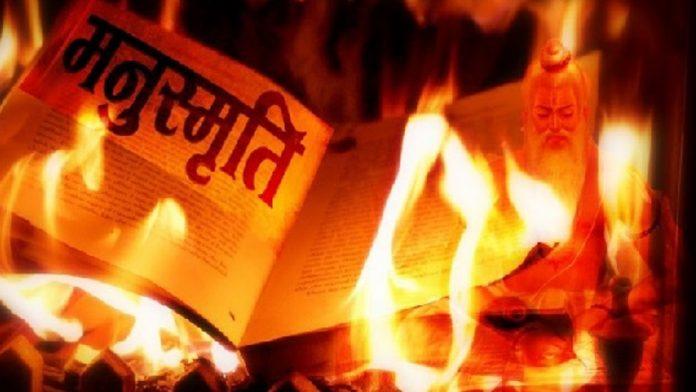
Image Courtesy: Social Media
Kaun Banega Crorepati (KBC) is perhaps one of the most successful TV programs ever. The prizes offered in it are unmatched by any other televised quiz show. In one of its episode, Karmayog, which was telecast this month, the KBC host Amitabh Bachchan asked a contestant, “Which book had Dr. BR Ambedkar burned?”
Every question asked on KBC is scripted; Bachchan does not make them up on the fly. The correct answer to the question he asked is “the Manusmriti”. The guest on the show on the night the question was asked was Bezwada Wilson, the most well-known anti-caste and anti-manual scavenging activist in the country.
A section of the audience reacted badly to the question. They were angry for they took it as an insult to Hindu religion. They claimed the question had “hurt their sentiments” and saw in it an attempt to divide Hindu society. The rage was best reflected in a tweet, “This is out of desperation to show BR Ambedkar as anti-Hindu which he was not. They want to divide Hindu community on the basis of caste…”
Of course, some present in the audience also appreciated the question, for they felt it helped throw light on the ghastly nature of the caste system enunciated in the Manusmriti.
Nevertheless, an FIR was filed against the program’s host and other executives who plan the show—predictably, for “hurting Hindu sentiments”. The dominant Hindu nationalism discourse wants to present Ambedkar, the first law minister and anti-caste campaigner, as someone who held the same views as them. As a result, the Hindu nationalists are forced to create a complex presentation of Ambedkar: on the one hand they glorify him and on the other they seek to undermine his ideas and struggles for equal rights to the Dalits. Hence we see the RSS and company indulge in celebrations of Ambedkar’s anniversaries with great gusto. One such program was attended by Prime Minster Narendra Modi in 2016, in which he described himself as a great “Ambedkar bhakt”. Modi also compared Ambedkar with American civil rights activist Martin Luther King Jr.
But while King was the youngest Nobel Prize recipient of his time (he was still youthful, only 35), and Wilson, the guest at the KBC show, has been working for decades against the dehumanising practice of manual scavenging, Modi wrote the foreword of a book, also titled Karmayog, [now withdrawn] in which he had glorified manual scavenging as a “spiritual” experience.
So whose sentiments are really being hurt? The same people who claim their sentiments are injured by an actual historical event—the burning of the Manusmriti—had vociferously defended their “freedom of expression” when it came to cartoons viewed as derogatory to the prophet Mohammad. The irony compounds, for four people were killed in France by fanatic elements who themselves were operating on the ground that the cartoons “hurt their sentiments”.
Ambedkar was an intellectual giant who led one of India’s most powerful anti-caste and anti-untouchability movements. He never minced words when it came to criticising Hindu practices. In his understanding, Hinduism was Brahmanical theology. He regarded Kabir, a 15th-century poet, as his guru. We understand from Ambedkar’s life and writings that he upheld the love and amity of the Bhakti traditions but recognised that the dominant trend in the multiple strands of Hinduism is Brahmanism. That is why he believed “Hinduism is Brahmanical theology”.
Ambedkar saw in the Manusmriti a concentrated expression of Brahmanical values, and so while he struggled for Dalits to gain access to public drinking water (Chavdar Tank Satyagraha) and their right to enter to temples he oversaw the burning of this book which a section of Hindus consider holy.
You may well wonder who reads and follows Manusmriti today? While the Sanskrit text may not accessible to most Indians, the book still impacts the Indian value system—at least, for large sections of Hindus it does. The journalist Akshaya Mukul, in his book, Gita Press, describes the impact this publication house (based in Gorakhpur) has had on the Hindu mind. A visit to any Gita Press store can demonstrate how its low-priced books enunciate Manu’s values at a popular level. One such book on “duties of Hindu women” was nothing but a total elaboration of the Manusmriti in a very simple and popular language. What shocks even more is that the print run of this book, priced at around Rs.5, runs into lakhs of copies.
Some might—do—still claim that Ambedkar was not “anti-Hindu”, but Ambedkar’s own words in this regard are very revealing. “Hinduism is …nothing but a mass of superficial, social, political and sanitary rules and regulations, organized around caste,” he famously said. He also promised that though he was born a Hindu, he would not die as one—a promise he kept. Similar were his ideas on a Hindu nation, which is the goal of the present ruling party. He says in his book on the Partition, “If Hindu Raj does become a fact, it will, no doubt, be the greatest calamity for this country. No matter what Hindus say, Hinduism is a menace to liberty, equality and fraternity. On that account it is incompatible with democracy. Hindu Raj must be prevented at any cost.”
Despite such formulations there are strident attempts from the political manoeuvrers in the BJP camp to glorify him while chipping away at his ideas and combating his actions at the social level. For instance, Ambedkar wrote the Indian Constitution, but the Hindutva camp wishes to replace it with what they consider more palatable. On the ground level they have adopted multi-pronged strategy to make inroads into Dalit communities. While Ambedkar calls for “annihilation of caste”, the RSS has floated “Samajik Samrasta Manch” (Social harmony Forum), which spreads the message that the caste system is the strength of Hindu society and that all castes are equal but assigned different (fixed) roles.
There is a great ongoing attempt at “social engineering” to co-opt Dalits into the Hindutva fold, deployed as foot-soldiers of Hindu nationalist politics. Some Dalit leaders are tempted with power to join this fold. This phenomenon was expressed best by Chirag Paswan, the Lok Janshakti Party leader from Bihar and Member of Parliament, who recently said he is “Modi’s Hanuman”.
On the lines of Ambedkar’s ideological and social battles, a section of Dalit leaders and social workers have worked for social equality and dignity of Dalits. The major obstacle is that such leaders are few and their efforts are fragmented. They have a multitude of challenges to overcome before India marches towards social justice and the dream of Babasaheb, which led him to burn the Manusmriti.
The author is a social activist and commentator. The views are personal.
Get the latest reports & analysis with people's perspective on Protests, movements & deep analytical videos, discussions of the current affairs in your Telegram app. Subscribe to NewsClick's Telegram channel & get Real-Time updates on stories, as they get published on our website.














